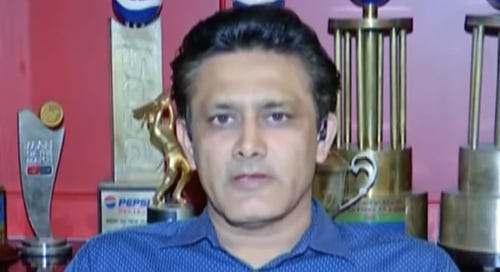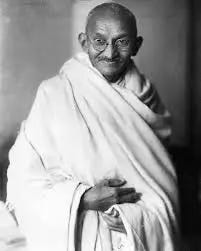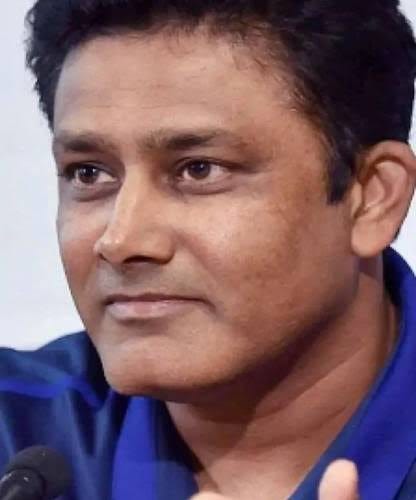“In a contest between cricket sense and money it makes sense to put all your money on the money.” The talk of ‘taking a stand’ against the domination of India and the BCCI in the global game is silly. The cricket world needs to eat and India has the majority of the bread. They bake most of it.
If the rest of the major cricket nations formed a solid alliance with the ‘threat’ of forcing India to rejoin the group as more of an equal, or play on their own, more than half would be bankrupt within two years.
“India is too important in the cricket ecosystem for all members, including the ICC itself. India will continue being an important touring team for all countries. To try to divorce yourself from India is not realistic for any country,” said Cricket South Africa’s CEO, Pholetsi Moseki.
An alternative approach might be one pioneered, ironically, by Mahatma Ghandhi. Non-violent resistance. Or in the case of cricket, and sport, perhaps ‘non-aggressive’ resistance might be more appropriate.
Anil Kumble wasn’t just a great cricketer, he was – and still is – a great man. I first became aware of this at an Awards Function hosted by the Karnataka Sports Journalists Association in Bengaluru in 2008 when, on the point of retirement, he humbly arrived to accept one of many accolades bestowed upon him.
Test wickets and international caps don’t automatically qualify cricketers to care or comment intelligently on matters outside the cricket field, even if you have 619 and 403 of them, but Kumble regarded it as a duty.
“With great power comes great responsibility” – a proverb which, it turns out, wasn’t first uttered by a great philosopher centuries ago but can be traced back only as far as 1962. It was said by Spider Man in a Marvel comic. Yep, seriously. The theme was that power should not be enjoyed merely for the privileges it brings but that its holders should be morally responsible for what they chose to do with it and over those whom it is wielded.
It’s a fanciful but honourable principle. As defenders of the BCCI and the Indian national team rightly point out, half a dozen of the Test playing nations are literally unable to unable to survive with the benefaction of the Indian Board and the tours they sanction by the national team.
The reality that those tours also benefit Indian cricket is irrelevant. Long gone are the days when India would send their strongest team for ‘meaningless’ bilateral series. Now, young and aspirant national players are given the chance to make their cases by visiting Sri Lanka, South Africa, Zimbabwe and the Caribbean. Benefactors they may be, but they are also benefitting.
And what of the IPL which is portrayed by so many of the ‘cognoscenti’ as being the heart of the demise of the game in the other ‘major’ nations? Well, the boards of those other countries also benefit when their players are signed up for an IPL contract. Numbers are deliberately kept shady but approximately 10% of a player’s contract is paid to the host nation whenever a player from that country is signed up.
Which explains why there are so few complaints from the men (and very few women) who run those boards. The moaning and whining comes mostly from amateur and professional followers of the game whose interest is personal rather than professional. If the IPL gorges three months of the calendar it upsets millions of people who love the game. But it pleases many more millions who also love the game.
India’s domination of the game is based on a population of over 1.5 billion people, not an uncanny ability of the BCCI to be exceptional, or even good, at administration. By the standards of other countries they are, in fact, extremely ordinary at it. Delivering schedules and venues timeously… doesn’t matter to them as it does elsewhere. The money will come whatever.
The SA20 Commissioner, Graeme Smith, said a month ago: “Everyone who has experience in cricket knows that the Indian market is the key to the game with its huge fan base and the commercial aspect that it brings. Obviously our six franchise teams originated in the IPL and have invested heavily in the SA20 and one of our biggest broadcast partners is over there, so if you want to grow and challenge globally then you need the viewership and you want people to tune in.
“Jio and Viacom have been an integral part of backing the league from the beginning when it was still just a dream and were just selling an opportunity. We were hoping for between 200 and 250 million viewers in India after three season, but indications from the broadcasters were that that figure was closer to 600 million. That really separates us from all of the other leagues outside of India,” Smith said.
If that means cricket in South Africa keeping its collective mouth shut and never remotely questioning their control, it’s a price very well worth paying. As it is for every other major nation – even England and Australia.
Every snidey jibe and criticism of jigged schedules and other advantages afforded to the Indian team at ICC events merely affords an opportunity for Gautam Gambhir and Sunil Gavaskar, and other firebrands, to shout back louder.
It might be time to sit back, shut up and appreciate the prosperity India brings to the game. In time, perhaps, the realisation might land that talent alone is good enough to win. And that beating under-funded opposition who are completely reliant on your largesse to survive isn’t especially satisfying. It’s a ridiculous idea but no less stupid than pretending India’s subservient opponents might form a club to stand up for their ‘rights’. India has all the rights.







That is true, Manners.
Just to give you an example, India is hosting the T20 Masters league and every game is televised with people watching at home and also coming to the ground in large numbers. At the same time, another Asian Legands League is going on where retired and former cricketers are playing from Asian Countries. And it is being streamed and watched from the stadiums. Where in the world is that possible except India to get such billing for that sort of a tournament?
I wonder if Anil knew he was channelling Spider Man